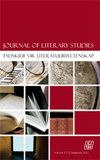The (De)Colonial Praxis: Confronting Present-Day Dilemmas of Transforming Knowledges and Societies in Kopano Matlwa’s Spilt Milk
IF 0.1
4区 文学
0 LITERARY THEORY & CRITICISM
引用次数: 0
Abstract
Contemporary South African campus fiction has always been concerned with questions of power, being, and knowledge production. Kopano Matlwa’s novel Spilt Milk, like most campus fiction, evokes and challenges the South African academy, and looks at ways of making the school and/or university a hospitable place. Unlike Matlwa’s sister novels Coconut and Period Pain, Spilt Milk has received few scholarly reviews. I examine how the novel reveals and can be read as a starting point in exploring the intellectual dimensions of colonialism. I investigate the decolonial concept of the coloniality of knowledge and Matlwa’s seeming quest for decolonial education by foregrounding the educational institution Sekolo sa Ditlhora as the prime setting of the novel. The argument around the coloniality of knowledge I advance here is akin to current debates seeking to decolonise (or Africanise) education in South African schools and universities. Theoretically, this article draws from the decolonial ideas on the coloniality of knowledge whose foundations were laid by the Peruvian sociologist Aníbal Quijano, who suggested that, for global domination, colonisers imposed their own modes of knowing and methods of producing knowledge. The concept of the coloniality of knowledge in Matlwa’s fiction is multifaceted since it speaks to the colonisation of space, education, languages, and the ways of life of the colonised people. Following the 2015 #RhodesMustFall protests at South African universities, I argue that the characterisation of Mohumagadi, and her foregrounding of Africa as an epistemic site from which she interprets the world, is an attempt at moving the centre.(非)殖民实践:在科帕诺·马特瓦的《打翻的牛奶》中面对知识和社会转型的当今困境
当代南非校园小说一直关注权力、存在和知识生产的问题。Kopano Matlwa的小说《打翻的牛奶》和大多数校园小说一样,唤起并挑战了南非的学院,并探讨了如何使学校和/或大学成为一个好客的地方。与玛特瓦的姐妹小说《椰子》和《经期疼痛》不同,《洒出的牛奶》几乎没有得到学术评论。我研究了这部小说是如何揭示并可以作为探索殖民主义知识层面的起点来阅读的。我通过将教育机构塞科洛·萨·迪特霍拉作为小说的主要背景,研究了知识的殖民化概念和玛特瓦对非殖民化教育的表面追求。我在这里提出的关于知识殖民化的争论,类似于当前寻求南非中小学和大学教育去殖民化(或非洲化)的辩论。从理论上讲,本文借鉴了由秘鲁社会学家Aníbal Quijano奠定的关于知识殖民性的非殖民化思想,他认为,为了统治全球,殖民者强加了他们自己的认识模式和生产知识的方法。Matlwa小说中的知识殖民概念是多方面的,因为它涉及到空间、教育、语言和被殖民人民的生活方式的殖民。在2015年南非大学爆发#RhodesMustFall抗议活动后,我认为Mohumagadi的特征,以及她将非洲作为她解释世界的认知场所的前景,是一种移动中心的尝试。
本文章由计算机程序翻译,如有差异,请以英文原文为准。
求助全文
约1分钟内获得全文
求助全文
来源期刊

Journal of Literary Studies
Multiple-
CiteScore
0.50
自引率
0.00%
发文量
0
期刊介绍:
The Journal of Literary Studies publishes and globally disseminates original and cutting-edge research informed by Literary and Cultural Theory. The Journal is an independent quarterly publication owned and published by the South African Literary Society in partnership with Unisa Press and Taylor & Francis. It is housed and produced in the division Theory of Literature at the University of South Africa and is accredited and subsidised by the South African Department of Higher Education and Training. The aim of the journal is to publish articles and full-length review essays informed by Literary Theory in the General Literary Theory subject area and mostly covering Formalism, New Criticism, Semiotics, Structuralism, Marxism, Poststructuralism, Psychoanalysis, Gender studies, New Historicism, Ecocriticism, Animal Studies, Reception Theory, Comparative Literature, Narrative Theory, Drama Theory, Poetry Theory, and Biography and Autobiography.
 求助内容:
求助内容: 应助结果提醒方式:
应助结果提醒方式:


